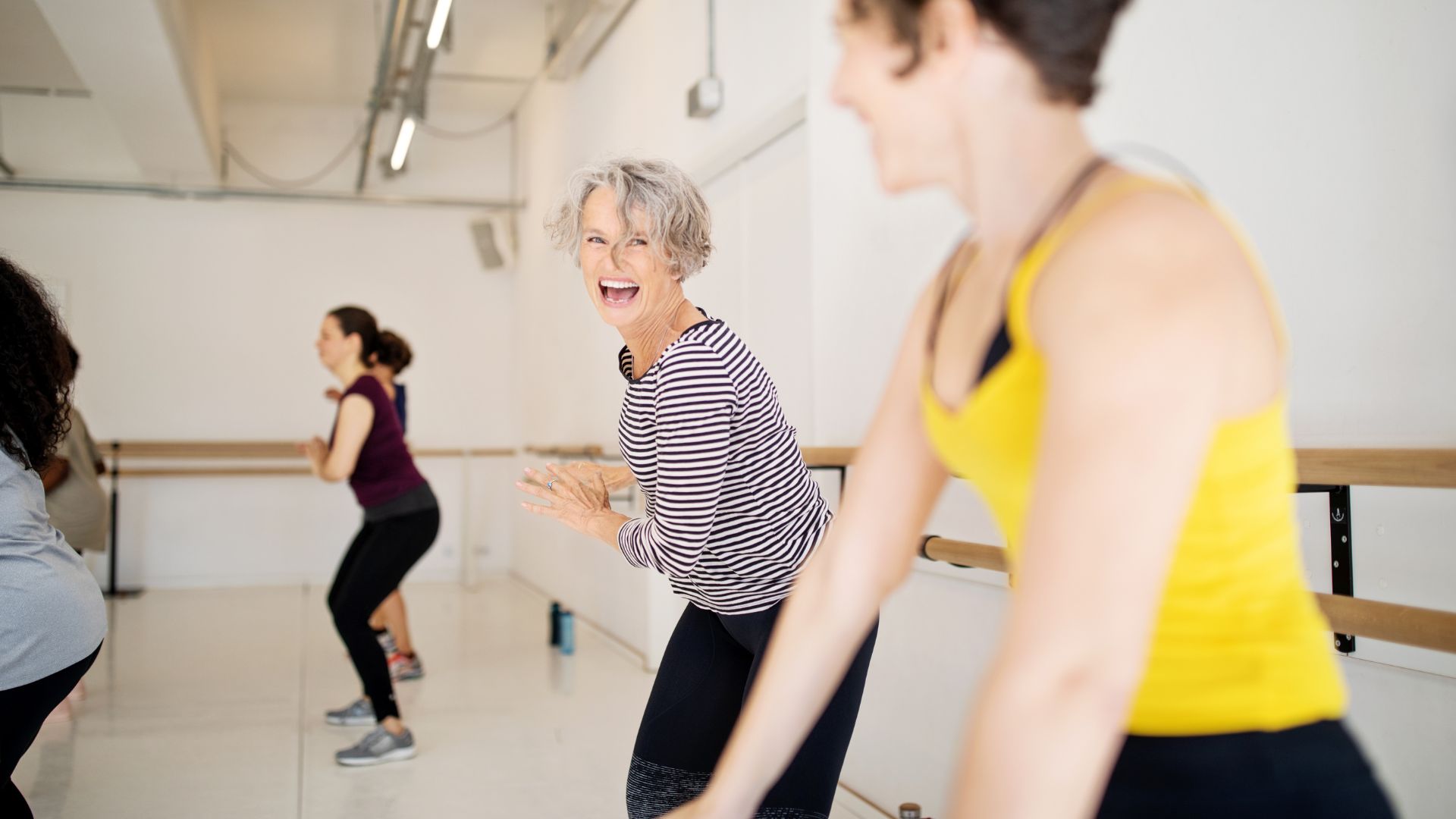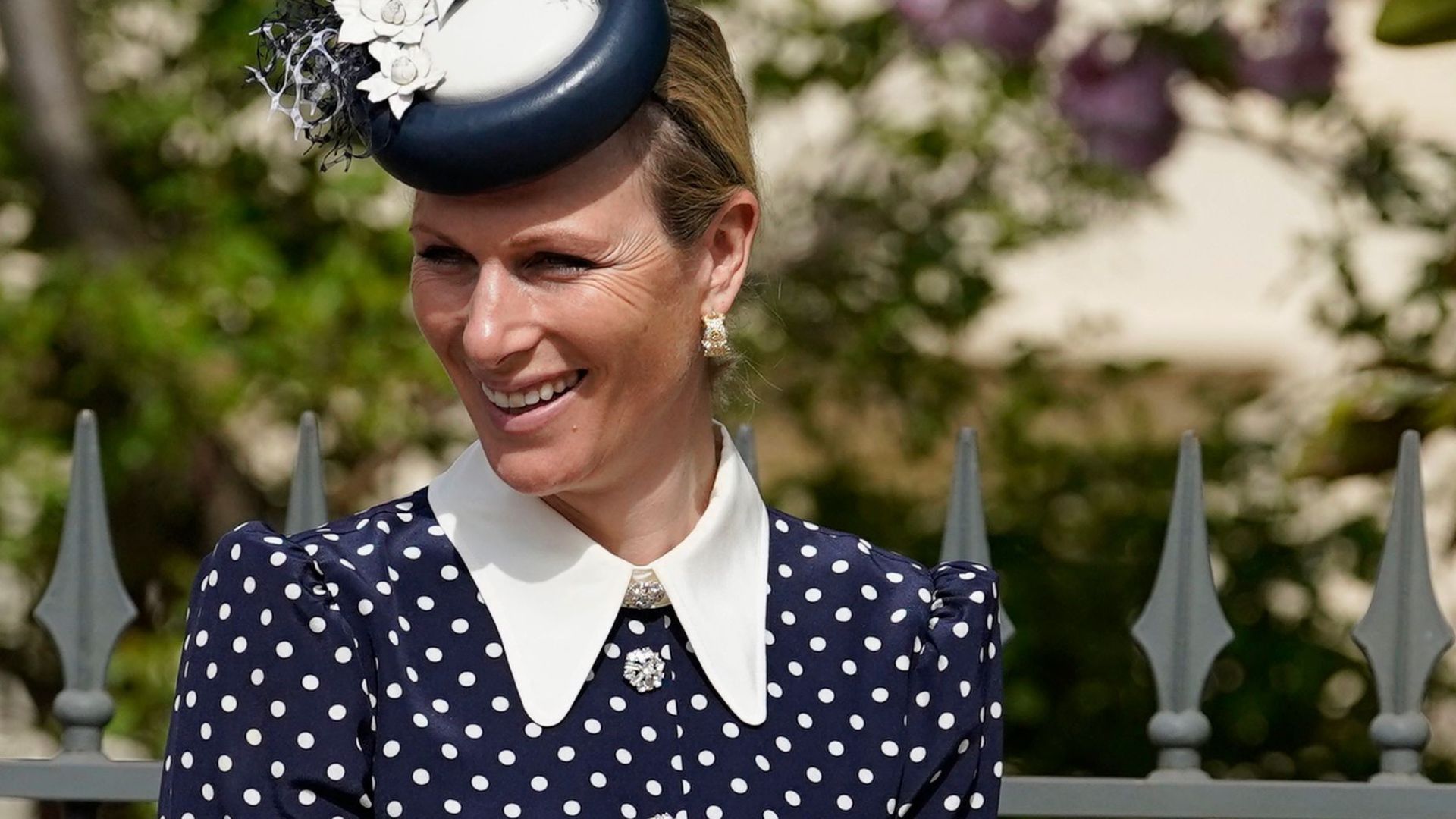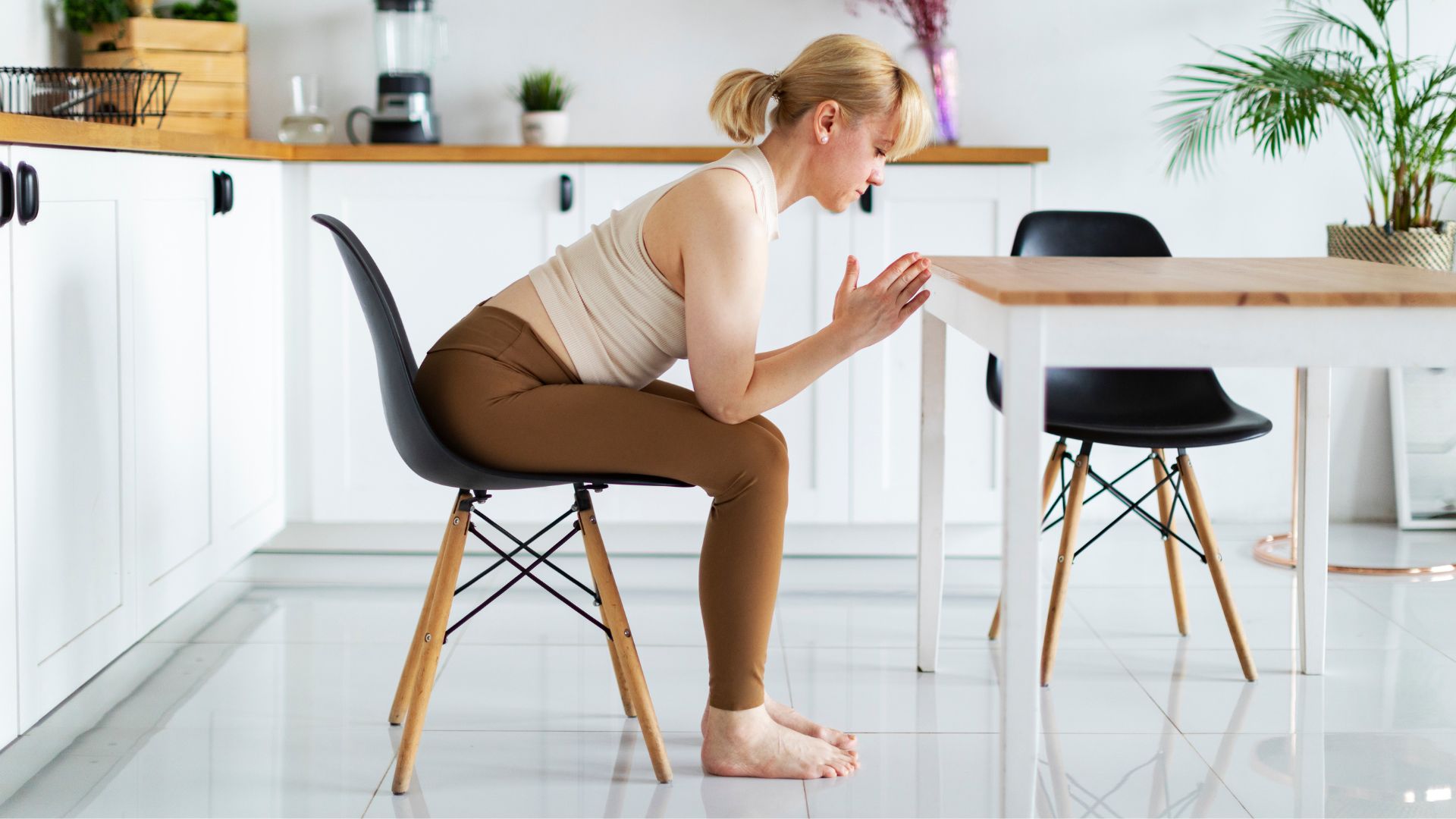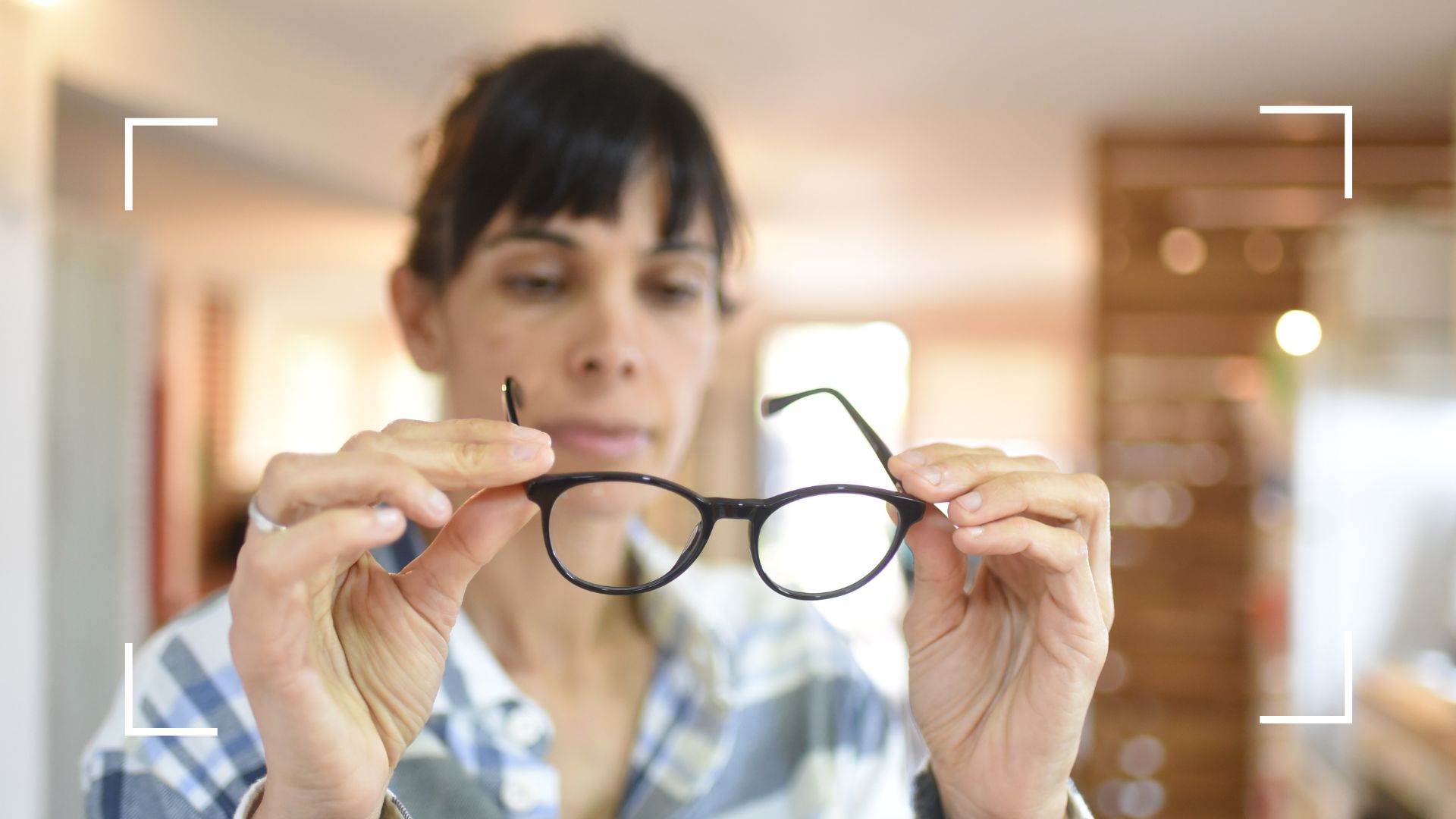What is the key to happiness in later life? Experts reveal their tried and tested solutions
We asked the experts what is the key to happiness in later life and these simple steps might just pull you out of your adulthood blues...


Even with years of wisdom and experience, many of us may still find ourselves wondering about the key to happiness in later life. And in what ways can we keep optimistic and joyful whilst dealing with the trials and tribulations of adulthood?
There’s no denying that reaching a state of happiness can become a little more complex the older we get. We rarely feel the same amount of overwhelming joy that we did as children. Unfortunately, cartoons and a chocolate bar don’t work like they used to when you’re faced with surprise bills and complicated relationships.
What can we do then to battle the adulthood blues and learn how to be happier? We asked the experts, from therapists and life coaches to doctors specialising in menopause, what tried and tested steps we can take to get us smiling from ear to ear, feeling truly happy and confident again both physically and mentally.
What is the key to happiness in later life?
1. Re-connect with old interests
As the years go by, we can sometimes find ourselves letting go of the small things that used to bring us joy. Whether it’s hobbies, interests or passions, it can be all too easy to forget to make time for the activities we’ve enjoyed in the past. Our families, relationships and friends can take a lot of our spare time, but the key to happiness for some could be rediscovering these passions.
Matthew Schubert, a cognitive behavioural therapist and the CEO of Gem State Wellness explains how rediscovering our previous hobbies can be helpful in several ways. He says, “Engaging in activities you're passionate about not only brings joy and a sense of accomplishment but also provides purpose. Additionally, these activities can contribute to your physical wellbeing, offering an enjoyable way to stay active.”
Perhaps it's time to rekindle your love of running or pick up that old guitar you've always wanted to try to learn. If you're looking to learn how to be happy alone, this can be another great step, both in terms of developing self-contentment and meeting new people.
2. Prioritise yourself
Being run down and dealing with burnout from work or everyday life can majorly affect our overall happiness and wellbeing - perhaps without us even realising it. On top of this, many of us will continue to prioritise the health of others over our own, even when we're running on empty.
Sign up for the woman&home newsletter
Sign up to our free daily email for the latest royal and entertainment news, interesting opinion, expert advice on styling and beauty trends, and no-nonsense guides to the health and wellness questions you want answered.
This well-meaning selflessness can only go on for so long until it becomes necessary to take a step back. Dr Louise Newson, one of the UK’s leading menopause experts, suggests that understanding the importance of self-care in our older years could be the ticket to long-term happiness in later life. She says, “I see so often women juggling careers and caring responsibilities with children or older family members that they leave so little time to look after their health and wellbeing.”
Making just some small changes can have a big knock-on effect though, she says. "Be it being more mindful with your food today, heading out for a walk, making an appointment to talk about your health or the importance of just saying ‘no’ so you don’t overburden yourself."
If you're looking for how to be happy in a relationship as the years go on, with the view of your partnership being the key to happiness, then it's especially important to look after yourself first. It may have been a step you've overlooked in recent years.

3. Adopt a balanced diet and lifestyle
When we're not feeling our best physically it can be really difficult to feel happy in our day-to-day lives. Finding a balanced diet and exercise routine that suits your requirements and lifestyle needs can make a huge difference in maintaining your overall mood and it could be the key to happiness later in life.
Dr Newson suggests a Mediterranean-style diet to start with as it includes a majority of nutrient-dense foods and healthy fats. She says, "This diet is high in vegetables, nuts and seeds, beans, whole grains, fermented dairy, seafood and unsaturated fats such as extra virgin olive oil."
Although it's not always best to cut foods totally from your diet, having fewer of those high in dairy, meat, salt, and sugar is best.
Consistent exercise is also an effective way to improve our mood in the long term. Not only does it have obvious physical benefits, like improving your cardiovascular health, but also finding an exercise you love can improve your mental wellbeing. As research from Boston University School of Medicine shows, the endorphins that fly through our bodies after a workout can improve our mood in both the long and the short term.
It's also a great opportunity for socialising. Joining a walking club or attending weekly gym classes can be a grat way to meet new people with similar goals and interests.
4. Stay up-to-date with your body
If you have your health, you have everything, the saying goes. So, as well as looking after yourself from a diet and exercise point of view, it's also important to be aware of the potential upcoming changes to your health.
Biological changes like menopause and perimenopause can begin without much notice and can be disruptive to our overall happiness, so the key to happiness in later life could be getting ahead of this.
Dr Newson, who is also the founder of the Balance app, specialises in the symptoms of menopause and perimenopause, the process, and how best to tackle it. She says, “Perimenopause and menopause can be a tricky time for lots of us. The hormone changes can trigger numerous physical symptoms like hot flushes, joint aches and pains and vaginal dryness, but psychological symptoms too." For example, many people find a link between their menopause and anxiety, especially if it's a condition they've not experienced before.
“Oestrogen helps regulate several hormones, which can have mood-boosting properties, such as serotonin, norepinephrine and dopamine,” she explains. “Oestrogen also helps to support the sharpness of your thinking skills and when levels reduce, it can lead to forgetfulness or brain fog, which can in turn lower your mood.”
There are a few things Dr Newson suggests to make this period a little easier and more manageable. Firstly, she stresses the importance of education and arming yourself with knowledge when it comes to what’s happening to your body. Secondly, she says that seeking help when needed is crucial. "If symptoms are affecting your life, don’t struggle. Speak to a healthcare professional about potential treatment.”
5. Keep in touch with friends and family
For many people, the key to happiness will be found in the relationships they form with others. Whether that's healthy romantic, familial, or friend relationships, actively developing and deepening your connection with others can create prolonged and profound feelings of fulfilment and contentment. On off days, it can also help you learn how to boost your mood in an instant.
Research from ETH Zürich found evidence to show that those with rich networks of active social relationships tend to be more satisfied and happier with their lives, with those who met friends less often having a lower level of relationship satisfaction and overall life satisfaction.
However, as well as nurturing our friendships, it's important that we evaluate them as we grow. It's just as easy to be in a toxic friendship as it is to be in a toxic relationship. Georgia Sturmer, a registered counsellor who specialises in women's issues, suggests asking yourself whether your relationships are balanced and if they truly meet your needs.
Sturmer says, "And if not, why not? Maybe you struggle to voice your needs, to say no, or to put yourself first. You may need to start practising voicing your opinions or making choices for yourself."

6. Cultivate a positive mindset
This may be perhaps one of the more difficult steps to put into practice, but training your thought process to be more positive can have a significant impact on your long-term happiness.
Therapist and Founder of the Private Therapy Clinic, Dr Becky Spelman explains the way we can work towards achieving this positive mindset. She says, "Foster a positive outlook on life by practising gratitude, focusing on the present moment, and challenging negative thought patterns."
More practical steps she suggests include surrounding yourself with positive social circles, reading empowering books and listening to one of the best podcasts for self-improvement. The more positive our environments become, the more positive we tend to feel on the inside.

7. Find your new purpose
As we get older and experience significant life milestones such as career changes, marriages, children, divorces, and bereavement, it can be scary to search for even more change. But as we go through life our external wishes and desires can drastically transform and it can be a great thing for our mental wellbeing to lean into this. It could even be the key to happiness later in life if you're looking to change things up.
Psychologist Nova Cobban highlights the importance of finding our new purpose after big changes in our lives. She says, "Many women after life-changing events, start their own business, start looking after their health for the first time, do a challenge to raise money for charity like a marathon or a hike. They find their voice and become an advocate for causes that mean a lot to them."
Our lives may look drastically different than they have years prior but this can open up opportunities for new beginnings. "Some women stop people pleasing and start giving their own needs equal priority to those of others they love. Purpose and meaning are the keywords here, what do you care about so passionately that it gives you the energy to think about it or to do it?"

8. Try new things
Along with rediscovering our old selves, it can be hugely rewarding to go out and discover what our present or future selves may find happiness in. Putting ourselves out there can be a great way of learning who we are right now, what makes us happy, and what we want to be doing with our lives.
Kendra Capalbo, a licensed therapist, strongly suggests trying new things in later life. "I would encourage women in their 40s to embrace the world around them and embark on new adventures. Take on fresh experiences, cultivate hobbies, and connect with different individuals," she says.
Capalbo, who is also the founder of Concierge Couples Counseling, says we should challenge our perceptions of ourselves to see how we could have evolved over the years. She explains, "This phase of life can be incredibly exhilarating because your accumulated experiences can shape the person you aspire to be and the future you wish to create for yourself." We simply must embrace the unknown and be excited."
9. Assess your drinking habits
It may sound oddly specific but you don't have to go through the best quit lit books to find stories of those who changed their lives for the better after quitting drinking for good. A study by the USA's Centers for Disease Control found that nearly 1 in 3 adults drink excessively and most of them binge drink on multiple occasions, with about 1 in 30 people classified as alcohol dependent.
As we get older, hangovers are increasingly more debilitating and drinking large amounts of alcohol can start having serious effects on our mental wellbeing.
Clinical hypnotherapist and meditation teacher, Jacqueline Carson, says it's best to avoid or limit certain substances later in life. For starters, alcohol is a depressant - even if it doesn't feel like it at the time. "Alcohol, nicotine and caffeine all affect our hormones and mood. Alcohol can distort thinking, which will not help both our short-term and long-term happiness," she says.
Nowadays, there are so many alternatives to alcohol to choose from - from low-alcohol wines to the best non-alcoholic drinks in a can, perfect for picnics, so you don't have to feel like you're missing out.
If you think you may have a drinking problem, reach out for help by contacting your general practitioner.
10. Find the work/life blend
This may surprise you as a great work-life balance is what most of us strive for, but Cobban, who is also the Founder of Wuum®, has other ideas. She says, "Stop striving for work-life balance and start looking for the right blend instead."
"Balance always suggests that things have to be equal for you to be happy, but using the word ‘blend’ suggests that you can have lots of things going on but there is still a blend of activities, roles and people that is right for you, that hits the perfect ‘flavour’ for your life," she continues.
We can't all expect to be able to fit the perfect work-life balance mould and be happy with it. Sometimes we need a lot more life than work and switching it up could be what you need to find the key to happiness later in life.

Emily joined woman&home as a staff writer after finishing her MA in Magazine Journalism from City University in 2023. After writing various health and news content, she now specialises in lifestyle, covering unique cleaning hacks, gardening how-tos, and everything to help your houseplants thrive.
-
 Remember Zara Tindall's polka dot Easter dress? It's spot on for special occasions - and we can't believe it's still available
Remember Zara Tindall's polka dot Easter dress? It's spot on for special occasions - and we can't believe it's still availableJust RSVP’d to a wedding? Her dress from 2022 can be yours
By Matilda Stanley
-
 This 5-minute workout can help build strength and flexibility if you follow one rule, a new study shows
This 5-minute workout can help build strength and flexibility if you follow one rule, a new study showsA 5-minute workout might sound like nothing, but it can have major benefits for your health, the study shows, with participants seeing changes in one month
By Grace Walsh
-
 Is coffee good for gut health? Nutrition experts reveal the truth behind our favourite wake-up call
Is coffee good for gut health? Nutrition experts reveal the truth behind our favourite wake-up callIs coffee good for gut health? Or is it time to bid adieu to our beloved caffeinated friend?
By Emily Smith
-
 Do blue light glasses actually work? We asked optometrists if you should get a pair
Do blue light glasses actually work? We asked optometrists if you should get a pairDo blue light glasses actually work and can they protect our eyes from all the screens in our lives?
By Emily Smith
-
 Winter plays havoc with our gut health - here's how to get it back on track
Winter plays havoc with our gut health - here's how to get it back on trackExperts reveal why it's so important to look after your gut health in winter and how to do it best
By Emily Smith
-
 What is pink noise? Experts reveal how this sleep-inducing sound works to help you drift off
What is pink noise? Experts reveal how this sleep-inducing sound works to help you drift offYou might have heard of white noise before but it's pink noise that's been proven to help you drift off and improve your health in other ways
By Emily Smith
-
 Can menopause cause dry eyes? Doctors reveal the truth behind the symptom
Can menopause cause dry eyes? Doctors reveal the truth behind the symptomYou might not think having dry eyes has anything to do with menopause, but this is actually one of the more unexpected symptoms
By Emily Smith
-
 How to clean a Fitbit properly with these 5 easy steps
How to clean a Fitbit properly with these 5 easy stepsHere's how to clean a Fitbit properly, after a study has revealed it's most likely three times dirtier than a toilet seat
By Emily Smith
-
 Can menopause cause insomnia? If you're having sleepless nights, this is what a doctor wants you to know
Can menopause cause insomnia? If you're having sleepless nights, this is what a doctor wants you to knowCan menopause cause insomnia? Unfortunately so, but there are a few ways to lessen the effects and get a better night's sleep
By Emily Smith
-
 Can menopause cause a loss of taste and smell? Plus, 6 other signs of menopause you might not expect
Can menopause cause a loss of taste and smell? Plus, 6 other signs of menopause you might not expectCan menopause cause a loss of taste and smell? It's more than just colds and flu that can change our tastebuds
By Emily Smith